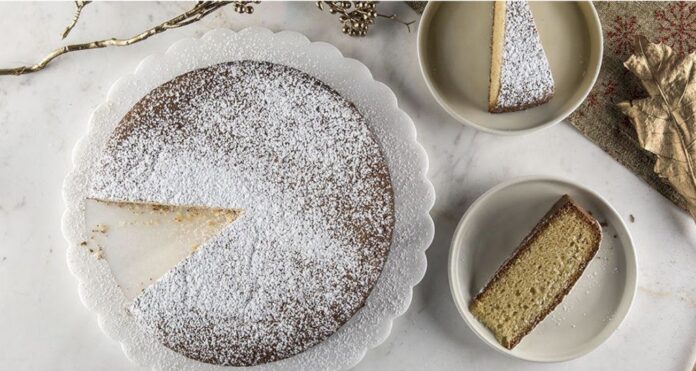Happy New Year from The Greek Herald! Whether it’s sharing a meal with family and friends or throwing old furniture out the window, many customary, luck-filled New Year’s traditions derive from a unique origin.
We take you through our top 10 traditions to mark the beginning of the new year.
1. Festival of Saint Basil (Greece):
Each year in Greece and countries where Greek diaspora live, there are a number of celebrations that take place as a means to attract luck and bring prosperity. An onion, for example, is traditionally hung on the door of homes as a symbol of rebirth and on New Year’s Day, parents wake children by tapping them on the head with the onion.
Another customary Greek tradition is consuming Vasilopita, or Saint Basil’s cake. This cake is baked with a silver or gold coin inside and whoever finds the coin in their slice is considered especially lucky in the coming year.
READ MORE: Traditional Greek Recipes: Vasilopita.

2. Wearing White (Brazil):
In Brazil, the new year is regarded as a time to reflect upon the past and make new resolutions for the coming year. Everyone wears white because the color signifies luck, prosperity, and is meant to ward off bad spirits.
As the tradition goes, revelers gather on the beaches donning white clothing where they jump seven waves—a lucky number in Brazilian culture—for good fortune and throw flowers into the water as an offering to Lemanjá, the goddess of the sea.
3. Carrying Suitcases (Colombia):
Partygoers carry empty suitcases at midnight in hopes of inducing a year rife with travel. They also bear money in hand to attract financial security and stability in the coming year. Lentils are believed to bring luck and affluence, so many bake them into their rice or carry them in their pockets.

4. Smashing Plates (Denmark):
One of the most popular New Year’s traditions in Denmark involves smashing plates and old dishes. Danish residents save their unused dinnerware and affectionately shatter them against doors of their families and friends as a way to ward off bad spirits.
Other traditions include jumping off chairs at midnight to “leap” into the new year and consuming Kransekage, a wreath-shaped cake created using marzipan rings stacked on top of each other with a bottle of wine in the center. The cake is decorated with ornaments and flags.
5. Consuming Grapes (Spain):
The most prominent New Year’s tradition in Spain involves consuming grapes. Each year, Spaniards partake in the annual tradition of eating one grape for every toll of the clock at midnight. The twelve grapes consumed are meant to represent good luck for each month of the year. Some even prepare their grapes by peeling and seeding beforehand to ensure they’re easy to consume.

The tradition is believed to have originated at the turn of the 20th century in the southern part of the country where makers of wine worked to boost demand for grapes in the winter.
6. Dropping Ice Cream (Switzerland):
In celebration of the New Year, the Swiss channel good luck, wealth and abundance by dropping a dollop of ice cream on the floor at midnight. They also line the streets in colorful costumes and perform symbolic ceremonies intended to chase away negative spirits.
Source: invaluable.com.
